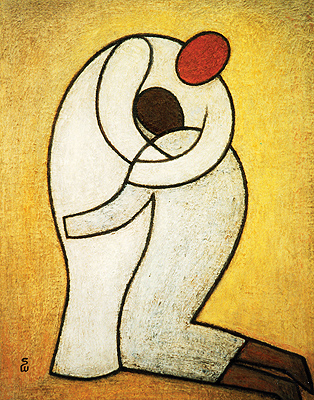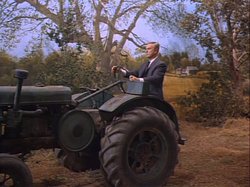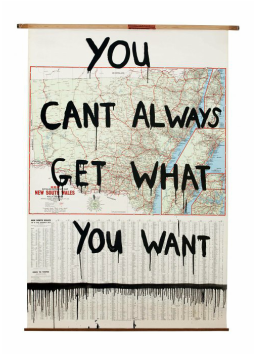 Luke 15:11-32 This morning’s question is one that needs to be asked right out of the gate. And I want you to think long and hard on this. Ready? “Are you a sinner?” If you try to deny it, then you are. Perhaps we should rephrase the question to ask, "How good are you at sinning?" On a scale from 1-10 where do you fall? Did you sin more when you were young? Or have you gotten better with age? I will admit I was once a really great sinner. Now, I am only so-so. Yet no matter how good I was at sinning, God was always better at forgiving. This is not to say that God loves it when we sin. In fact, the Bible clearly states...he doesn’t. But God also knows we are broken people. And in spite of all our brokenness...God still loves us. Go figure. Of all the gods in our world today, our Father, who art in heaven, is the only one who loves us more than we love him. Last week we learned how the kingdom of Heaven is all about God's grace and love. This week we see how they are magnified in the parable of the Prodigal Son. Even if you are unchurched, you have probably heard this story, or at least a version of it. Thousands upon thousands of films and books have drawn from its characters in every conceivable way. This parable is still relevant today, as it was back when Jesus first told it. On one hand, we are all sinners, in need of the Father’s grace and love. But the parable loses something profound about God when we reduce it to a story of mere redemption. On the other hand, I like how G.K. Chesterton describes it as, “the furious love of God.” In essence, God’s love for us is so intense, and all-consuming that it knows no limits, and has no boundaries. God’s love for us will go to any lengths, and take any risks, to pursue us. I believe it's worth exploring the historical context behind this parable to give us a full sense of the Father’s furious love. You see, there’s a lot going on that we might over look with our 21st Century lenses. For example, there were many ancient Jewish laws and customs are not as tolerant like the ones we have today. Here we have a son who wants his portion of the inheritance. To us, it doesn’t sound so crazy. It's like a kid asking for his college money. But instead of buying books, he buys beer...and lots of it. To a 1st century Jew, such a request was equivalent to saying…, “I hate you, I want you dead.” Again, it doesn't sound so harsh. Some of us parents have heard these words before, perhaps some of us as teenagers have even shouted them once or twice. But this is no “Sticks and stones may break my bones, and names will never hurt me.” Jesus’ listeners knew that uttering such seething words...to your father no less...carried a death sentence. Teenagers beware! Such words were so blasphemous and dishonorable that they could get you stoned to death. Still, the Father gives his child what he wants. The father loves him so much that he will take on the shame and embarrassment, and even the financial hit to his wealth. Now we know how the story plays out. He blows through his inheritance. And is forced to take a job at a pig farm…which is not the best job for a good Jewish boy in any century. When he can no longer stand the life that has made for him self, the son begins his long, repenting journey home. Now remember, he is a wanted man. Coming home is risky. He has a target on his back. Anyone who saw him, be it family or a slave, had the legal right to kill him on the spot. If we forget about this crucial part to Jesus’ parable then what comes next is nothing more than a nice gesture between two people. The father sees his son from a long way off and has compassion for him. Knowing his son’s life is in real danger, the father runs with real purpose. He does not run just to welcome his son home, he runs to save his son’s life. And when he reaches him,...he embraces him. He not only embraces his son...but begins to kiss his filthy, smelly, unclean face. The father loves his son with such conviction that nothing will stop him from showing it. This son, who had just squandered half of his family's fortune, receives the furious love of his father. We are all sinners. Some better than others. Yet God runs after each one of us. God embraces us. And kisses us...And welcomes us home. There are no solemn lectures or heaps of guilt. No shame or punishment. Instead Jesus says…”they began to celebrate.” In a time when society was fueled by honor and shame, this parable was so counter-cultural that Jesus has to add the jealous brother into the mix just to make it believable. In his book What’s So Amazing About Grace, Phillip Yancy writes, “We are so accustomed to finding a catch in every promise. But Jesus’ stories of extravagant grace include no catch, and no loophole disqualifying us from God’s love. Each has at its core an ending too good to be true, or so good that it must be true.” If you have ever experienced God’s grace, you know that it often feels too good to be true. And if you haven’t experienced, then what are you waiting for? Christ invites us to be embraced and kissed by God, even in our dirtiest, smelliest, sin stained moments. We can chose to carry a cross of guilt and shame. Or give our cross over to the one who gave up his life so we could be washed clean. Through Christ, God has given us new cloaks of righteousness and new shoes to help us walk in faith and love. Through Christ we are given new rings that show the world we belong to God's family. A beloved child of God. This is what The Father has intended it for us since the beginning. There was never a time when God was not love. That love was made manifest in Christ who came running after us, to save us from death. God takes the first step towards us. His furious love and endless grace chases after us, regardless of who we are and what we’ve done. To know God’s love and to trust in it allows us to abide in God’s presence at all times. In other words, God’s love welcomes us home. Because God's love is home. Sadly, there are those who have bad memories of their fathers. Therefore they fear God, or push God away. They have a distorted image of the Holy Father. To them God is angry or absent or even abusive. Because of this...they distance themselves from God. They walk away from following the path of Christ. And soon no longer feel the spirit breathing in them. They wake up one day, lost and alone, in a foreign land. Spiritually broke. As one great sinner once sang, "We can run all we want, but not go anywhere." We can run away. And try to make it on our own. Or we can jump into the furious love of God, who saves us, and who embraces us, and rejoices over us because one of his children who was lost has been found. Yes, we are all sinners. And no matter how good we are at sinning, God will always be better at forgiving. And if you ask me, this alone is reason enough to celebrate every day as the Father’s Day. Amen. Yancy, Philip. What's So Amazing About Grace? Grand Rapids: Zondervan, 1997.  Readings: Psalm 20; Mark 4:26-34 (Open with a parable of the TV show “Green Acres”) Jesus said the Kingdom of God is like someone who spreads seeds on the ground, and then goes to bed and rises in the morning. He doesn’t worry about the seeds or how they will grow…In fact Jesus makes a point to say the gardener has no idea how it grows. He trust the seeds and the mystery contained in them. Today we have a pretty good understanding of how a seed works. You plant them, you water them, and wait for them to grow. This then leads me to ask, “Do we trust the seed?” In other words, can we live with the mystery that is locked away inside their little shells? Do we really believe it will do what it is supposed to do? Now, I can’t say for sure if those first hearers of this parable understood biology or seed germination, but I suspect even the most basic farmer knew that before a plant can grow…a seed must die. Like with every parable we must ask, "What is Jesus trying to reveal about himself in these two parables?" I'd summarize it something like this: Bury a seed that has died and trust that it will come back to life. Bury a seed that has died and trust that it will come back to life. Trust that it will not only come back to life...but that it will be greater and mightier than the little seeding from which it came. And such trust will yield a bountiful harvest. Scientifically speaking, the study of actual seeds provides insight to our Christian faith. Take DNA for example. It reveals that inside every little kernel of corn, or the tiniest of mustard seeds, rest an entire legacy of history, dating back millions of years. And like Christ, the hope that each seed gives us today points towards a bountiful future sown into creation at the beginning of time. Inside each seed...all the instructions of life, death, and rebirth are mysteriously engrained, enabling it to produce another plant just like the one before it. Again, the gardener doesn’t think about how the seed grows, nor does he seem to care. Likewise, he doesn’t fret over pulling the weeds or hoeing the soil. He is so free from any worry and anxiety that he is able to sleep peacefully. He knows and believes the harvest will come in due time. Have you ever thought about how nice would that be to experience? To trust God so fully that you can walk through the gardens of life free from the baggage of the past. Imagine what it is like to nestled in God’s grace and love while sleeping so soundly and living peacefully until the great harvest season. This is what the Kingdom of God is like. It's about faithfully trusting in God and not relying on our broken selves. It's about giving ourselves over...completely and wholly...to the mystery of God’s grace and love. This might seem difficult, but it’s not impossible. Unless, of course, you are like me. I’m more like Eddie Albert’s character in Green Acres. I have difficulty trusting the seed to grow on its own. I feel like I have to control it somehow. I fool myself into believing that the seed’s life depends on me. Every morning I go outside to inspect my tomatoes and hot peppers, to see how they are sprouting; wondering what I can do to help them along. Now, you might figure with a name like Macdonald I’d be a natural at farming. I am not so sure about that. I am not sure that farm living is the life for me. First of all, I like to sleep in. And second I’m too impatient. I have trouble simply watering and weeding and waiting. Trust, like farming, can be hard, backbreaking work too. There is soil to prepare; rocks to be removed; and the constant vigil for pests and other hidden dangers. But Jesus tells us the seed just simply needs to be planted. It will grow on its own. We are not in control. God is. So why worry? It only takes our focus off what we are called to do. Through Christ, God’s grace and love is given freely to us. Even if we’ve sown seeds of doubt and pain...God says it's ours if we want it. God gives it to us, because God loves us. Christ, the divine gardener, trusts the seed to grow accordingly to the promise sealed within it. There is nothing he, or we, can do to change this. In the same manner, there is nothing we can do to earn God’s grace and love. So why worry about those things that are out of our control? Instead, put all your seeds in one basket and trust that God knows what to do with it. As followers of this divine storyteller, we are given complete instructions on how to follow in Jesus’ footsteps. To live faithfully to God’s righteousness, we must remember that we are walking around with a seed that God has planted inside each one of us. This seed is in God’s care, and through God’s grace and love it too will grow. In the meantime, we are called to spread the seed of God’s grace and love everywhere we go; until the day of the joyful harvest. When we trust in even the smallest of seeds, which were once considered dead, we too will rise again. I remember an episode of Green Acres, Mr. Douglas stands in a straggly field of dying corn stalks. All his hard work, money, and worrying could do nothing to keep the crows from destroying his hopes and dreams. But then his wife finds a lone ear of corn left untouched and unharmed. She pulls it off the withered stalk and hands it to her brokenhearted husband. It was a tender and touching moment for a show that redefined comedy. In one kind act of love, the novice farmer slowly begins to triumphantly grin from ear to ear (no pun intended). All his headaches and backaches, depression and sadness all mysteriously disappear. Hope and joy return to his heart. From a tiny kernel of corn that was once dead, comes new life. Wrapped peacefully in the soft, silky husk, that one individual ear of corn finds safety nestled in the hands of the great gardener. To us, such a measly harvest might seem like a waste of time and energy. But to God, whose grace and love is grows freely, every individual life is welcomed and received with such enthusiastic joy.  Readings: 1 Samuel 8:4-20; Matthew 6:24 I opened with the story of contradicting signs as read in Oakland Airport. (“All you need is love,” by J. Lennon; P. McCartney. “You can’t always get what you want,” by M. Jagger; K. Richards) I wanted this morning’s question to be that age-old one, Rolling Stones or Beatles for the greatest band of all time? Of course that’s like asking you all to decide between Michigan or Michigan State. While we can debate the merits of the British Invation later...I’ll leave college rivalries up to the Skinner twins to sort out. Mick Jagger said "We can't always get what we want." So my question to is “Why not?” Why can’t we get what we want? Why can’t we live by the rule of Burger King...and have it our way? Let’s try an exercise. Close your eyes and think of one thing you really want. Something that your heart has desired for a long time. Don’t say what it is. Just picture yourself...filled with great joy because you finally got what you wanted. Now, open your eyes. And cling to that feeling. Imagine waking up on morning and getting everything you want. Your body no longer feels the aches and pains of age. Your children are no longer fighting each other. Your boss gives you a promotion and a well needed raise. And let's go all out...you picked the willing Powerball numbers. That would be great, wouldn't it? Now, go back to that thing you just thought about...and ask yourself "Is God in that picture?" How many of our wants and desires include God. Do we want to be closer to family...or have a closer relationship with God as his child? Did you wish to live in the perfect house...or to live in perfect Christ-likeness inside and outside your home? We can want better neighbors...but what we need is to love our neighbors better. Don’t feel ashamed if you wanted another stuffed bear for your collection, or that you wanted to win the lottery. Jesus says, “Whatever you ask of the Father in my name, he will give to you.” There is some truth to what Mick Jagger sang, we don't always get what we want...“But if we try sometimes, we just might find, we get what we need.” God knows what we need. And what we want. It's up to us to balance the two. But companies spend billions of dollars every year to make sure our needs and wants are not aligned. They want to make sure we are never satisfied with what we have. They promise us that we can have our cake and eat it too, and yet they are always baking a bigger, and better cake. Some of us know too well that chasing the things we think we want, doesn’t always make life easier, but instead more difficult. It has become too easy to confuse our wants and our needs and therefore we are often out of sync with God. It's like this: Your sailing a boat on Lake Michigan and because it's Michigan the weather changes quickly for no apparent reason. Sunshine turns to a nasty storm. You sail towards the safety of a dock at the shoreline. Now when you dock a boat, what is the first thing you do? You tie it to the dock, right? Otherwise, the boat will slowly drift away. The same thing happens when we are not tied securely to what God wants from us. Slowly, we begin to drift. We drift away and towards other ‘stuff’. ‘Stuff’ that can be tempting and alluring, pulling us away from God. It's often at the dock where Christians stumble with their faith. In stormy times we'll sail towards the dock for safety. But then we only plant one foot on the wooden planks. The other one we keep in the boat. Can you the problem coming? Jesus says we cannot serve two masters. We will love one and hate the other. We can't straddle between the two...without experiencing some negative consequences. If we are not securely tied to God, we don’t get what we want. Or what we need. Instead we wind up in the cold water. We cannot serve two masters. Israel learned this lesson the hard way. In 1 Samuel, we read they desperately wanted a king. God said, I am your king. But they began to whine louder, "we want a king like our neighbors have;" one that is battle tested, smart and comes from a rich and powerful family. It didn't matter that God led them out of slavery in Egypt. Or gave them the Promised Land. How quickly they forgot it was God who protected them from their enemies. Samuel warns the people that any other king will only bring misery upon them. They will not have freedom, but have slavery again. An earthly king will take their sons and put them in his army. He will take their daughters and put them to work to care for his personal needs. He will burden them with taxes. He will take their slaves; a portion of their crops, and land, and animals. To think how far we've come in 3,000 years. But Israel kicks and screams, like a child still wanting candy after his parents have said no. In spite of the warnings, God gives them what they want, which is not necessarily what they need. God gives it to them, because God loves them. They are his beloved children. And even the best parent gives in to the wishes of a crying child. Israel will discover that each new king they drift further and further away from God’s life giving spirit. Before long political disagreements will divide the House of Israel into two nations; weakening them further. Smaller and more vulnerable, neither side is able fend off the attacks of their war hungry neighbors. Within a few hundred years the 12 tribes of Abraham had been dismantled and dispersed. What God wanted from them, they could not give to God. And they suffered the consequences. Yet God hears the prayers of the faithful, the scattered remnants, crying out from the different lands and nations. Crying out for a savior to rescue them, and return them back to their former glory. And so God sends his people one last king. One who would not only gather the lost sheep, but who come to save all of creation. This king would be different. This king would not be rich or battle tested. In fact, he would come in the form of a weak and vulnerable baby. Born in a dirty stable to a poor family with no political sway or social status. He would ride a donkey instead of a warhorse. He will wage peace instead of violence. He will promote freedom instead of slavery. This king would take nothing, but instead give everything he had, including his own life. Jesus was and still is a different kind of ruler. He is King of kings, and Lord of lords. He gives us Gods love and redemption. He made us heirs in God's family. He transformed our most basic needs into our most cherished desires. Because of the blood he shed on the cross, the mistakes of our past are washed clean. Because of his righteousness and guidance, we receive grace, and mercy, and peace, and joy. These are things we cannot buy, but only wish for. Christ paid for them with his life. We cannot serve two masters. But why would we have to, or want to? Christ gives us all we need, everything we could ever want or desire. When we are tethered to Jesus we can have our cake and eat it too. As we follow the way of Christ, and put our faith to work, then our wants and needs become one in the same. We become in sync with our Creator. The things we want from God are the things God wants from us. And what God wants is all we need. How does that song go again? If we try sometime, we just might find, we get what we need. Or for your Beatles fans... "All we need is love." |
Ian MacdonaldAn ex-copywriter turned punk rock pastor and peacemaker who dedicates his life to making the world a better place for all humanity. "that they all might be one" ~John 17:21“Prius vita quam doctrina.”
~ St. Thomas Aquinas (1225–1274) * “Life is more important than doctrine.”
Archives
June 2024
|

